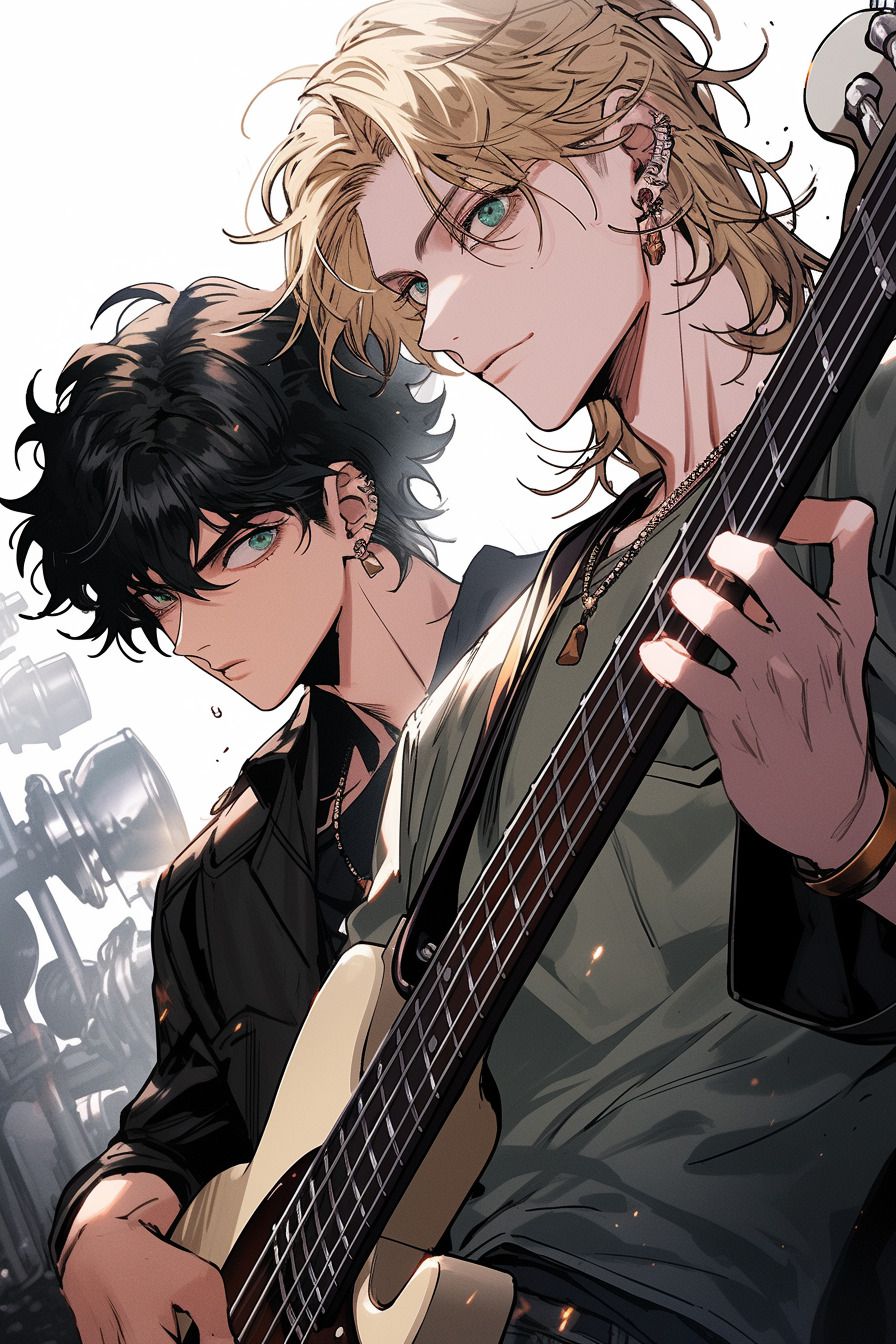Chapter 13
He suspected he had fallen into a new nightmare again.
Until that damp, shadowy figure stretched out and stood upright.
Just then, the voice-activated light timed out. The place was plunged into darkness again, and Henry Clark didn’t see his face.
But he knew who it was.
“All right, all right, here we go again.” Henry Clark smiled helplessly.
“Aren’t you some kind of pervert?”
His tone was even gentle, as if he couldn’t be bothered to get angry. He just tried to avoid him, wanting to stick the key into the lock, the drunken slur in his voice making him sound almost coquettish, “Give me a break.”
“There are plenty of people in the world who can play guitar, even more who can sing. Why does it have to be me?”
“I only want you.”
How could there be someone like this?
Henry Clark let out a laugh, but said nothing else, as if he didn’t care at all. It took him several tries to finally open the door.
He staggered inside, just wanting to slam the door shut behind him, to shut out everything from the outside world—especially this persistent lunatic.
Suddenly, he felt resistance as he tried to close the door.
The iron door was too heavy; trying to block it barehanded would definitely cause injury.
This thought flashed through his mind, and Henry Clark’s temples throbbed twice. He turned and yanked the door open—almost a reflex.
He stared at Edith Parker’s hand gripping the doorframe, his eyes full of lingering shock.
There was even a suppressed anger in them. In the darkness, Edith Parker could see it clearly.
“You really are fucking crazy…” Henry Clark grabbed his hand and yanked it up, gripping hard. “Aren’t these the hands you play guitar with!”
Just as he thought.
That sentence, that attitude, only confirmed Edith Parker’s suspicions.
He didn’t resist, letting Henry Clark hold his wrist, but with his other hand he picked up the guitar case standing outside the door, and calmly but firmly squeezed into the pitch-black room, closing the door behind him.
The torrential rain battered the windows, water streaming down, but inside the room it was eerily quiet, only the two of them breathing.
Edith Parker lowered his head, staring at the hand gripping his wrist, examining the new tattoo that stretched from the wrist all the way to the index and pinky fingers—a magnolia tree.
Just now, Henry Clark’s words echoed in his mind.
Yes, these were the hands he played guitar with.
The hands he pressed the strings with.
Facing Henry Clark, Edith Parker called out a title he hadn’t used in years: “Senior.”
“When did your hand get injured?”
Henry Clark froze on the spot.
Suddenly, he woke from his nightmare—all it took was a single sentence.
Because there is no dream worse than reality.
After a long silence, he let out a few loud laughs, shook off Edith Parker, wiped his wet face, his voice a little hoarse: “So, the whole band thing was just a front. You just think you know something, and came here on purpose to humiliate me, is that it?”
“It’s not a front. I mean it.”
Facing Henry Clark, he couldn’t say the reason he’d deduced, couldn’t tell him: Because I’ve seen so many versions of you in the past, always following like a shadow, so I understand you. Even a tiny change in the way you open a can, a phrase blurted out in a moment of urgency, can let me piece together the whole logical chain.
No one knew the real reason Henry Clark disappeared from the scene.
People only knew he had a falling out with the other members of [Unordered Corner], got caught up in all kinds of negative news, was kicked out of the band unilaterally, terminated his contract with the label, was rumored to be shelved, even vanished from the world.
But that wasn’t the whole truth.
In the darkness, Edith Parker’s voice was deep: “It was because of you that I decided to become a bassist. Even if your hand is injured, it won’t change my original intention. I just want to form a brand new band with you in it. It’s fine if you don’t play guitar.”
“I’ll be your musician, you be my lead singer.”
Henry Clark was silent for a long time, as if he was really listening.
Then he grinned and laughed.
“Do you think you’re some kind of hero now?”
Edith Parker didn’t answer.
“You racked your brains to find me, tried so hard to pull me back, put on an earnest face and loudly told me: Come on, pull yourself together! You can do it!”
Henry Clark’s expression was exaggerated, as if he really was the protagonist shouting in a hot-blooded manga, but the next second, the smile at the corner of his mouth turned cold, his eyes dark and heavy.
“You think this is redemption, right? Fine, then you can deal with me, just like sorting garbage and putting each piece into a different bin. When you’ve really wasted all your time doing this, you’ll only be even clearer about what kind of trash I am.”
He took a deep breath.
“So, stop doing these self-congratulatory things. Right now, I don’t want to do anything. I just want to be a piece of trash, free and easy, all right?”
After he finished, the always-silent Edith Parker finally spoke, blunt to the point of cruelty.
“Are you free now?”
Henry Clark said nothing more.
You’re not free. You’re trapped by yourself. Edith Parker answered for him in his heart.
Maybe angered by the question, Henry Clark suddenly shoved Edith Parker against the door with a bang—his back hit the iron door so hard that even his baseball cap was knocked off.
